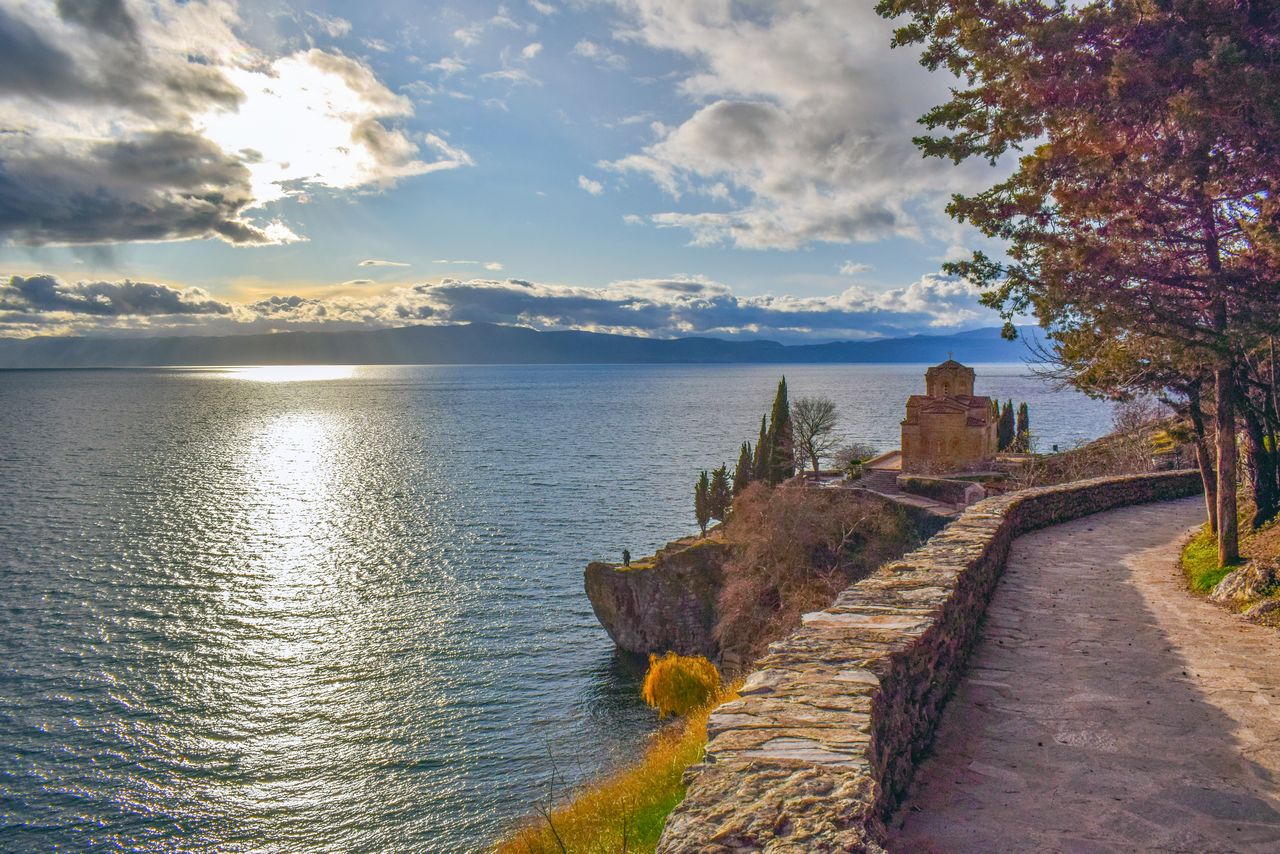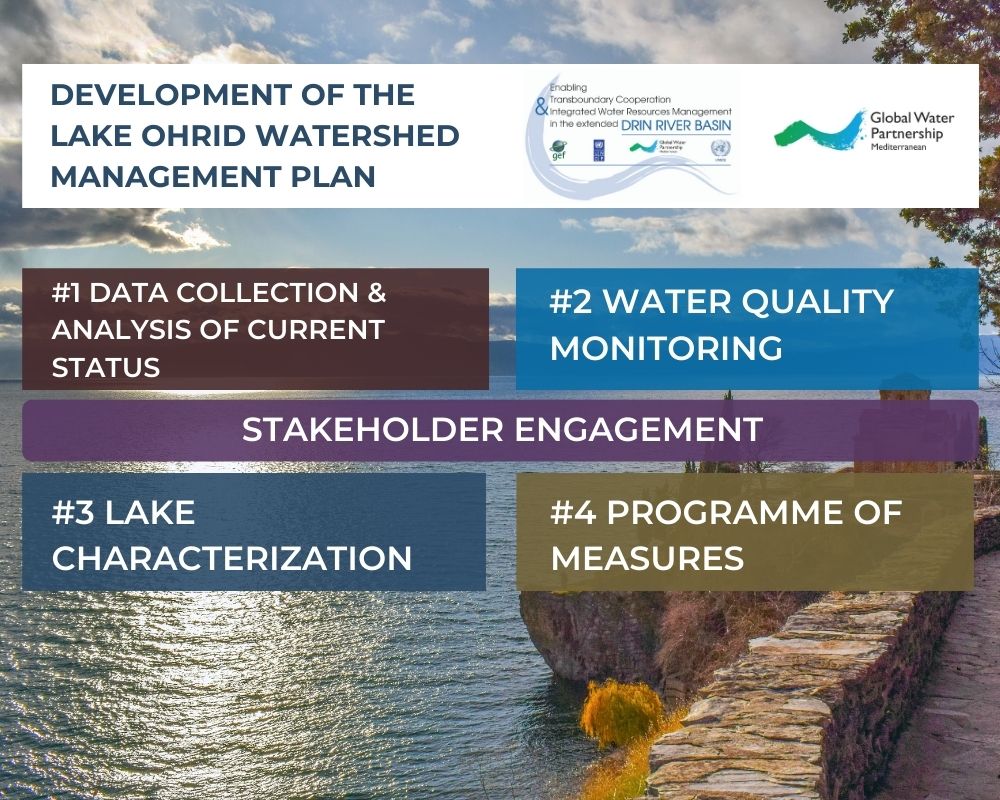The Lake Ohrid Watershed Management Plan was deliberated at the bilateral Lake Ohrid Watershed Committee meeting on Friday 27 November 2020, following its recent finalisation. The Management Plan has been recently approved by the responsible authorities of Albania and North Macedonia. The Committee, consisting of political representatives from both countries, met online to discuss the final Management Plan and possible next steps towards its implementation.
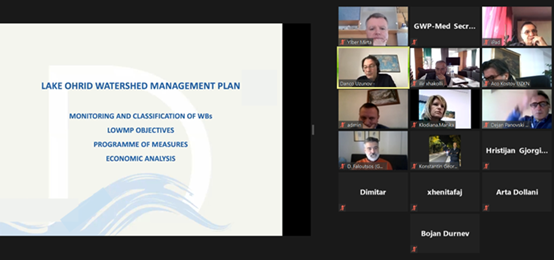
The meeting was organised on the joint initiative of Mayor of Ohrid, Mr Konstantin Georgieski, Chairman of the Lake Ohrid Watershed Committee, and GWP-Med, as executive organisation of the GEF Drin Project. The Committee commended the finalisation of the Management Plan, noting that it marks an important step towards the protection of Lake Ohrid, a biodiversity hotspot of European importance which is home to 170,000 people.
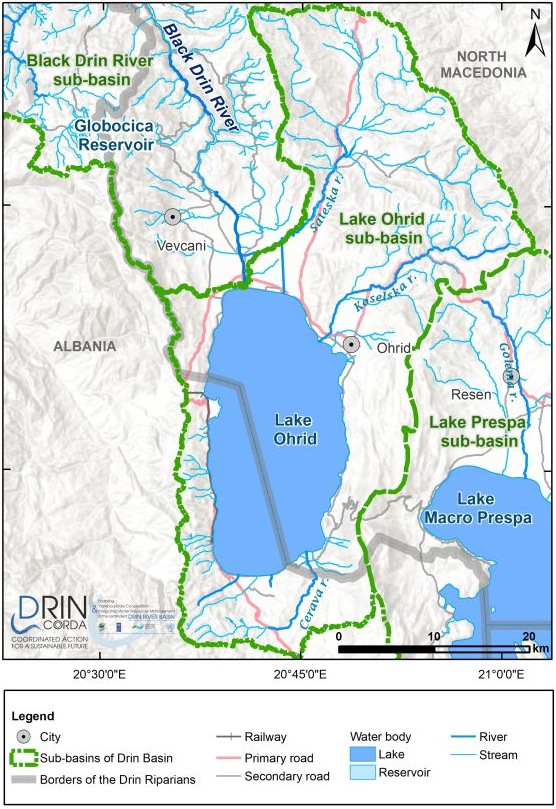
Lake Ohrid, a UNESCO World Heritage site shared between Albania and North Macedonia, sustains economic activities such as fishing, agriculture, hydropower and tourism and hosts more than 300 endemic species. However, in recent years the Lake faces a number of challenges such as declining fish stocks, eutrophication, habitat destruction and poor water status. To address these challenges, the transboundary Lake Ohrid Watershed Management Plan was developed under the coordination of Global Water Partnership – Mediterranean (GWP-Med) in the frame of the GEF Drin Project, which promotes improved transboundary water management in the Drin river basin.
The development of the Management Plan was the result of a two-year process, informed by transboundary data gathering, including the joint Lake Ohrid water quality surveillance monitoring campaign, an economic analysis and an analysis of ecosystem services in the region.
Read more about the Development of the Lake Ohrid Watershed Management Plan.
Mayor of Pogradec, Mr Ilir Xhakolli, commended the development of the Management Plan and noted that the institutions should work on implementing the measures from the Plan. He also informed of action already taken by Albania in the field of liquid and solid waste management.
Mayor of Ohrid, Mr Georgieski, found the document very important for the future of the region and expressed the willingness to continue joint efforts for prioritizing the measures and soliciting funding for their implementation.
Mr. Dimitris Faloutsos, Deputy Regional Coordinator, GWP-Med, expressed his contentment for the finalization of the Plan and for servicing in this way the efforts of the Bilateral Committee and the national responsible authorities for the coordinated management of Lake Ohrid and its watershed.
Mr. Dejan Panovski, Senior Programme Officer, GWP-Med and National Coordinator for North Macedonia, GEF Drin project, greeted the committed leadership by the Bilateral committee and called for a process of prioritising the measures, to facilitate their implementation.
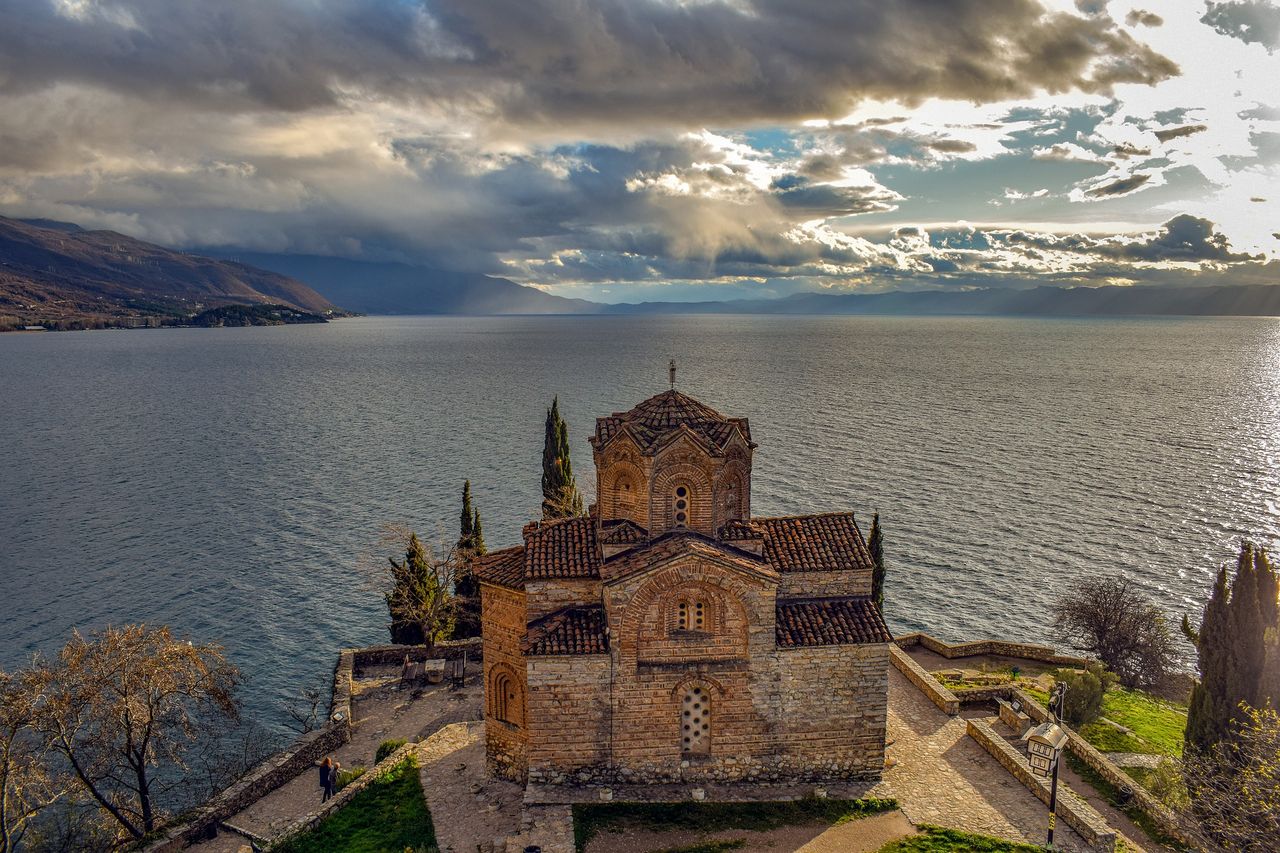
The Lake Ohrid Watershed Management Plan is the second transboundary management plan in accordance to the EU Water Framework Directive developed in South East Europe. Its Programme of Measures includes more than 100 measures that will prevent further deterioration of water resources and ecosystems, promote sustainable water use, improve water resource and ecosystems quality, and contribute to the mitigation of floods and droughts in the area are included.
The Management Plan is prepared to be the official instrument of cooperation between Albania and North Macedonia for the management of Lake Ohrid.
The development of the Lake Ohrid Watershed Management Plan is one of the Pilot Activities in the frame of the Global Environment Facility (GEF) Drin Project, which is implemented by the United Nations Development Programme (UNDP) and executed by Global Water Partnership – Mediterranean (GWP-Med) in partnership with the United Nations Economic Commission for Europe (UNECE).
